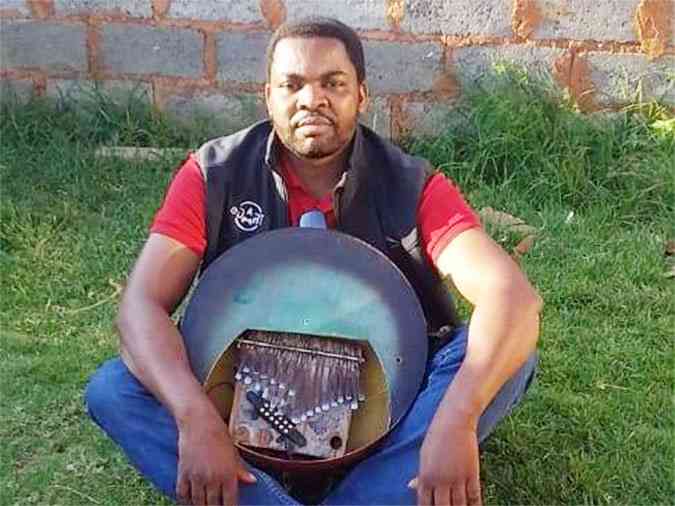
EPHAT Mujuru is regarded as one of the finest mbira musicians to have emerged in the country and most artistes of his epoch desired to collaborate with him or be part of the Spirit of the People, an outfit that backed him.
He was a genius when it came to playing the traditional instrument; most viewed him as the fountain of knowledge when it came to the mbira.
The young and the old wanted to be associated with the Mujuru brand, which at the time had to contend with contemporary music brands.
Songs from his albums - Shona Spirit, Rhythms of Life, Africa as well as Ancient Wisdom: Songs And Fables From Zimbabwe – became global hits and at some point world-acclaimed record labels such as Universal Music, Distribution Deals, Music of the World, Alula and Lyrichord scrambled for his signature.
He was a role model to many and one such musician who laments Mujuru’s untimely death in 2001 is Rangarirai Mazambara.
Mazambara, who also featured on the local soapie Tiriparwendo as Nyasha in the early 2000, was a protégé of Mujuru, but he missed the chance to collaborate with him.
“I met Ephat Mujuru for the first time and he invited me to go to his house in Glen view 8 Harare,” said Mazambara.
“l used to be at his home several times and we had agreed to record an album together, but unfortunately he passed away before we recorded anything.
- Why every artiste should write a will before death
- Why every artiste should write a will before death
- Amadhuve on a mission to uplift fellow female artists
- Amadhuve Sasha hosts birthday bash
Keep Reading
“Ephat Mujuru wanted to take me to the Book Café, Harare to play there during Monday sessions.”
Mazambara said if he had collaborated with Mujuru, he would have perfected his art, particularly playing the mbira which he was introduced to when he was six years.
He said playing the traditional instrument was in his DNA.
“My father was an unrecorded musician born in 1932 and he is still alive,” Mazambara said.
“He used to lead a band that was hired in the village and they were playing guitars until a time he moved to the mbira.
“He had his own mbira, which he had made on his own.”
The Zaka-born artiste now based in Johannesburg said his mbira playing skill is self-taught although he was inspired by his father.
“I never thought my father would allow me to play the mbira or the guitar, but I was surprised this other day when my mother asked me to play the instrument in his presence and he really liked it and the rest is history," he said.
Mazambara said he would play the mbira at the shopping centres or village parties alongside one of his uncles until the time he moved to the capital just before the turn of the millennium.
“In 2001 l formed my own group called Great Mbira Sounds alongside Amego Mukucha and we recorded three songs for the national soccer team when they were going to Tunisia,” he said.
“Three years later we recorded Tiriparwendo, the theme song for the soapie of the same title, which was written by Aaron Chiwundura Moyo and both of us were roped in the soapie as actors.
“In 2006 we recorded our first album titled Tiriparwendo Volume 1 and it was a flop before I relocated to South Africa in 2008.”
He also did a project of a short film with the late Oliver Mtukudzi titled Chipo Changu in 2007.
Despite working in South Africa at an engineering company, Mazambara has not lost his love for music and last year released a single titled Shanda.
“Shanda is now available on the YouTube channel and many other online music platforms,” he said.
“I featured ex-Third Generation backing vocalist Pamela Zulu, aka Gonyeti on the song.
“Currently I am in the studio recording my sixth album, which would contain a remix of Tiriparwendo and it will once again feature Gonyeti and Obert Gomba on drums.”
Mazambara said he was inspired by the uniqueness of his father’s mbira, he modified his instrument to suit his skills.
“I can play any type of music genres from traditional, rhumba, mhande, katekwe, jiti, museve, reggae to amapiano and the list is endless,” he said.
“This kind of mbira is rare and it's only three of us; myself, Sam Legend Mutandachinga and Felix Machiridza who is based in Australia, who have it all over the world.
“It is a 23-key mbira which is different from others in terms of key layout.”
However, Mazambara said he also plays other mbira such as Nyunganyunga and Nhare, of which he has made a few compositions from the instruments.
The mbira musician, who prefers to be called Gwenyambira, said he was in collaborations with Mutandachinga of Mbira Praise and Worship as well as Darlington Tanganyika, who fronts the Journey Band and based in Johannesburg.
He said he desires to return to acting if an opportunity arises.
Just like many of his countrymen in South Africa, the father of five said it was tough to get recognition in that country’s music scene.
He said his work was also limiting him from his passion — music.











